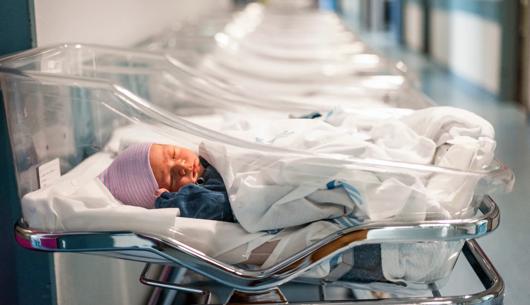Questions, consultations and some answers from the UK Government.
The LPS were enacted by Parliament as part of the Mental Capacity (Amendment) Act 2019. They are intended as a replacement for the Deprivation of Liberty Safeguards (DoLS), and in a previous article we outlined the key differences between the two schemes. However, as we also previously reported, implementation of the LPS has been postponed multiple times. On 5 April 2023, the UK Government announced that the introduction of the LPS would be delayed “beyond the life of this Parliament.”
In response to this announcement, several organisations, including the Association of Directors of Adult Social Services, the British Association for Social Work and the Welsh Government, voiced their concern and disappointment with the delay. On 26 May 2023, the Parliamentary Joint Committee on Human Rights (“the Joint Committee”) wrote to the Minister of State for Social Care to express its “deep concern”. The letter repeats the concerns expressed by the Joint Committee in 2018 and 2022 about the problems with the current DoLS system, and highlights that those problems appear to be getting worse.
In its letter, the Joint Committee points to the fact that only a fifth of standard DoLS applications are approved within the 21 days required by law, with the average timescale for approval being 153 days. It highlights that this means that in 80% of cases the individual has been deprived of their liberty, without authorisation, for a substantial period of time. The Joint Committee is also concerned that non-means-tested legal aid continues to be unavailable for challenges to a deprivation of liberty where authorisation is delayed, or where authorisation is granted directly by the Court of Protection. It also stated that, as care providers have been focussing on planning for the introduction of LPS, some providers are not maintaining their level of understanding about DoLS. This has led to what the Joint Committee calls a “general poor understanding” of the system which currently applies.
The Joint Committee therefore posed four questions to the Government and requested a response by 14th June. The questions posed were:
- Does the Government still believe that the system of DoLS is in need of reform? If so, given the delay in the implementation of the LPS, are any reforms of the system currently planned in the interim?
- What steps are being taken to address the delays to the processing and completion of DoLS applications, with the aim of ensuring that no one is unlawfully deprived of their liberty in a care setting?
- Will the availability of non-means-tested legal aid be extended to include those who may be subject to deprivation of liberty in care settings without an authorisation in place?
- What steps are being taken to ensure that those involved in making DoLS decisions receive adequate human rights training, and fully understand the operation of DoLS?
The UK government has now responded to the Joint Committee. In its response, the Government acknowledges the challenges facing the current DoLS system and states that the decision to delay the implementation of the LPS was “not taken lightly”. Key points from the Government’s response are as follows:
- The Government recognises the importance of updates to the Mental Capacity Act Code of Practice (MCA Code) being taken forward irrespective of LPS, to ensure all those practicing in this space have accurate and up-to-date guidance. The Department of Health and Social Care (DHSC) and the Ministry of Justice (MoJ) intend to work together to consider the feedback and publish a response to the consultation that was held in 2022 regarding the new LPS system, and on changes to the MCA Code, with the aim of publishing a revised MCA Code. Further details on the timing of this work will be shared with the sector in due course.
- The Chief Executive of Social Work England and the DHSC continue to work together on launching a consultation on refreshed standards for Best Interest Assessor Training to ensure the ongoing quality of all those carrying out this role under DoLS.
- Legal aid will still be unavailable to those who are subject to deprivation of liberty in care settings where no authorisation is yet in place or in cases where the Court of Protection needs to make a deprivation of liberty order outside the DOLS regime. However, if the application to the Court of Protection is made on behalf of an under 18-year-old, they will benefit from the decision to introduce non-means tested civil legal aid representation for all under 18s.
- In response to the concern about steps required to support training, the government highlights access to available resources through Health Education England’s e-learning for health platform as well as the Social Care Institute for Excellence’s website.
- In addition to updating the MCA Code, the Government continues to support the National Mental Capacity Forum whose purpose is to raise awareness and understanding of the MCA across the health and social care sectors. The MoJ also intends to publish an MCA toolkit shortly, which will provide guidance on the MCA and the legal steps for parents and carers to access funds on a young person’s behalf.
Separately, the Welsh Government recently published a summary of responses to the consultation that it held between March and July 2022, in relation to the draft Regulations that are intended to support the LPS in Wales. The Welsh government stated that, “we will need to consider how we strengthen the current DoLS system in Wales and continue to protect and promote the human rights of those people who lack mental capacity. Stakeholders in Wales have provided significant evidence and support to help us shape the LPS for Wales. Welsh Government will be re-engaging with stakeholders so that we can listen and hear what we can do now to address some of the current challenges within DoLS. This will support the current application of DoLS, and strengthen the position that Wales will be in to transition to the LPS in the future.”
There is therefore no change in decision to delay LPS beyond this parliament and organisations will need to work with the current DOLS regime for the foreseeable future. It will be important now to see the revised Code in due course and in the meantime ensure that robust processes are in place to support familiarity with existing processes and the Act. We will keep you updated as and when new information or documents are published. In the meantime, Browne Jacobson can provide support and training on both the Mental Capacity Act and the current system of DoLS, so if you need any assistance please do get in touch.
Key contact

Mark Hickson
Head of Business Development
onlineteaminbox@brownejacobson.com
+44 (0)370 270 6000





































